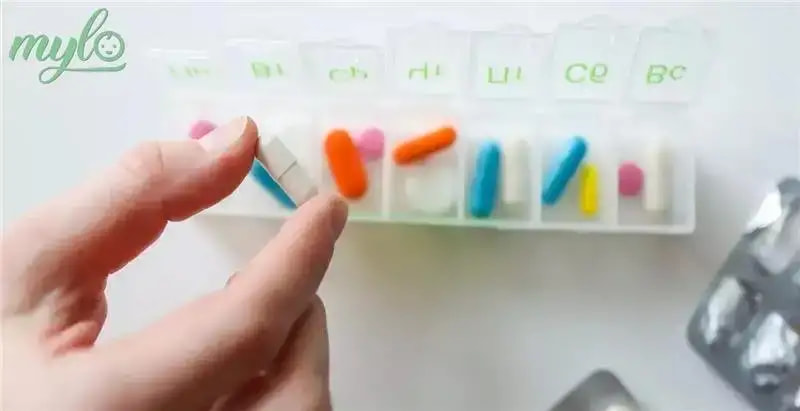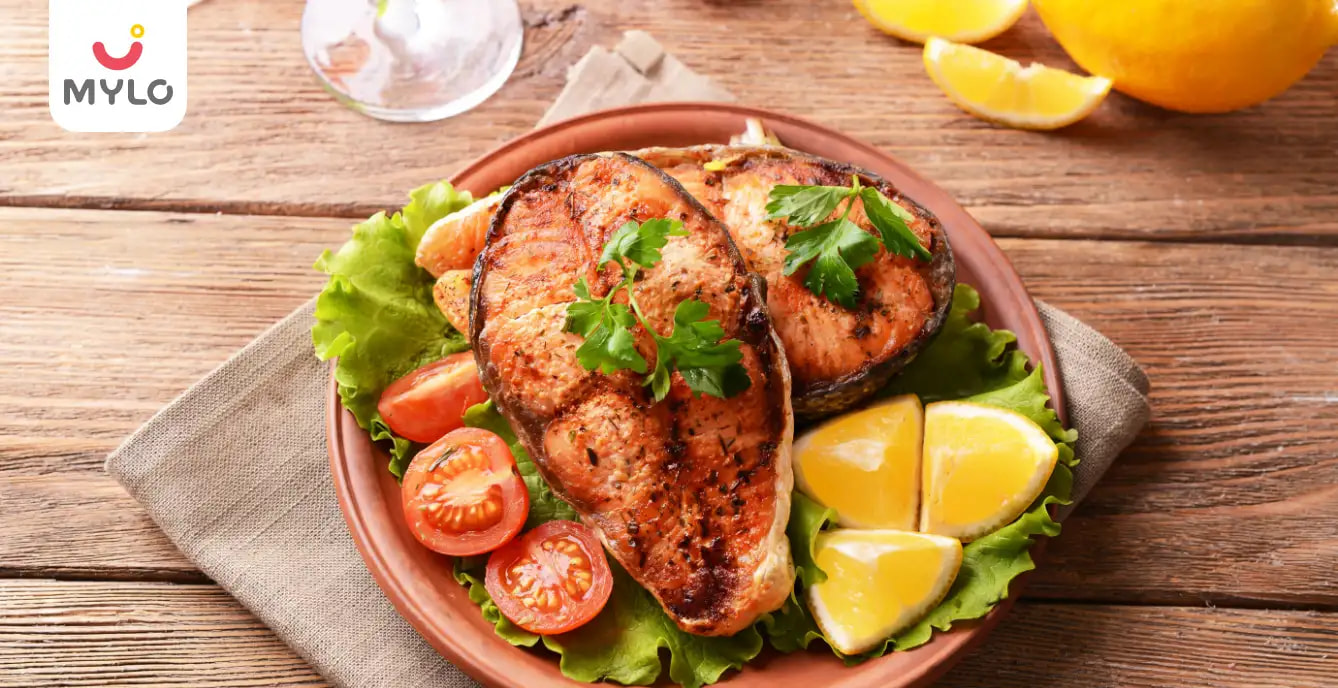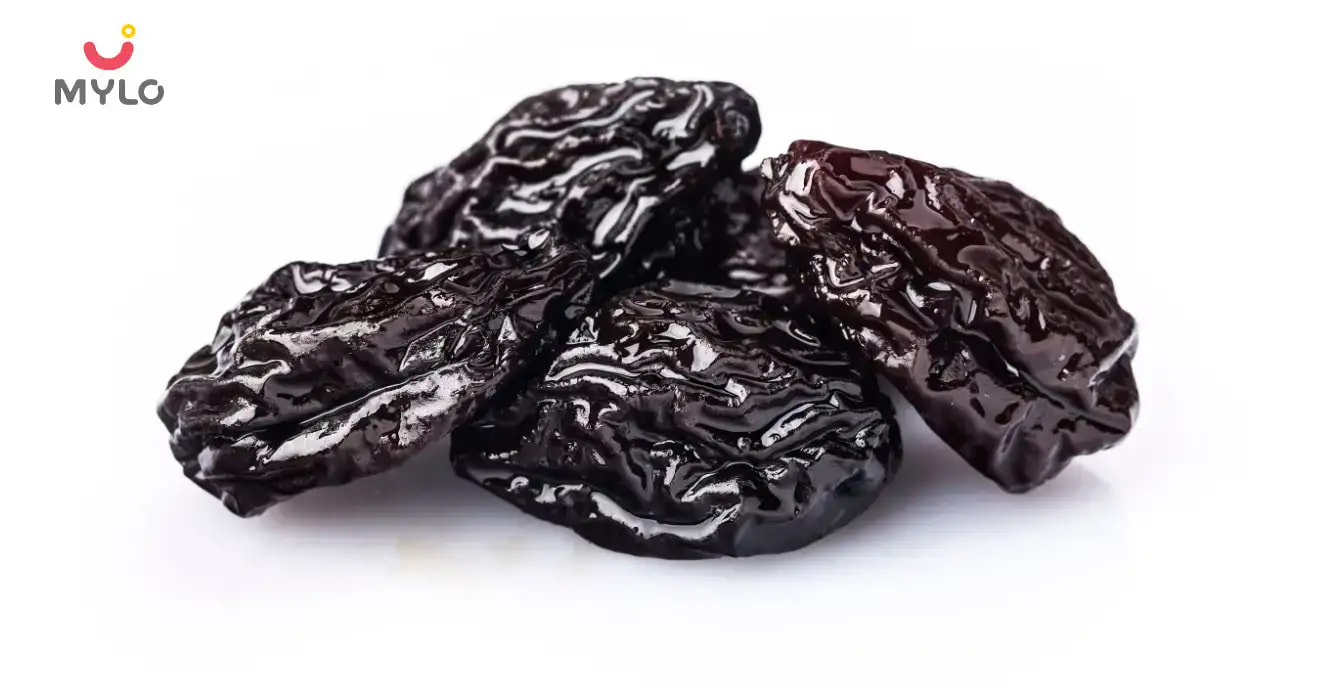Home

Vitamins & Supplements

An Expecting Mother's Guide to Vitamins & Supplements in Pregnancy
In this Article
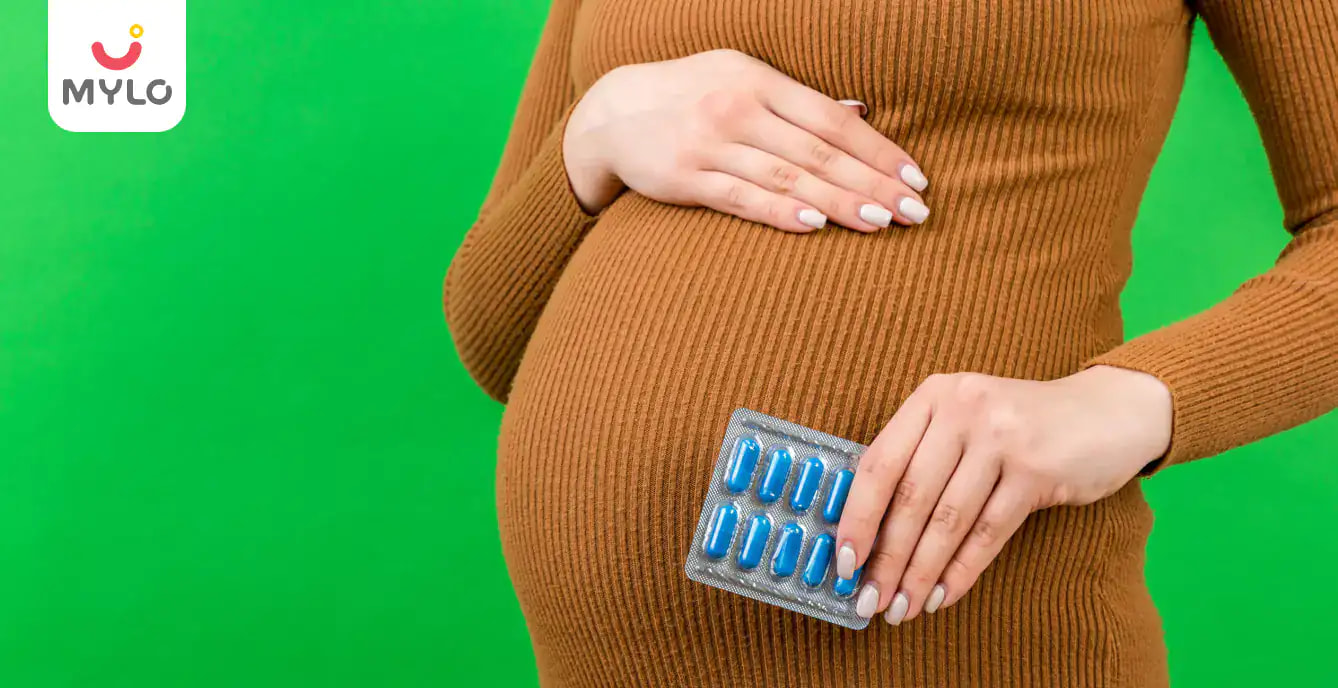
Vitamins & Supplements
An Expecting Mother's Guide to Vitamins & Supplements in Pregnancy
Updated on 18 January 2023
If you have just found out that you are pregnant, and you have been recommended to take vitamins or supplements, it may be important for you to be aware of a few aspects. Some vitamins can harm your growing baby in the womb, whereas some may be beneficial during pregnancy. Either way, it is advised that you always consult your doctor before starting any vitamins for early pregnancy.
As for Vitamin D, which your skin is able to synthesize from sunlight, there are numerous other vitamins that your body can absorb from your diet. One can also find dietary supplements in numerous medicines today, which can bridge a vitamin deficiency gap in a diet. Some examples of dietary supplements include fish oil tablets, herbal minerals, as well as multivitamins.
What Vitamins And Supplements Should I Take While Pregnant?
There are numerous vitamins as well as supplements that you can take while pregnant, depending on the requirements of a healthy pregnancy. There is no doubt that balanced nutrition is crucial for the growth of your baby, however, sometimes, you might have to consume the right amount suited for your child’s needs and your own too! In fact, during pregnancy, you will need more nutrients like folate, iron, vitamins, iodine as well as protein.
1. Folate
Folate is a major requirement because it helps to prevent various defects related to the neural tube. You can take folate in the first three months of your pregnancy. However, make sure to consult your doctor before starting out on any particular brand, since not many brands are authorized and usually don't contain the required dosages of vitamins required by the body.
Your doctor may recommend you take the best folic acid tablets for pregnancy of 400 micrograms every day, especially for the first three months. This concentration is considered ideal to prevent spina bifida which is a defect of the neural tube. In case you did not start folic acid before conception, it may be important for you to take it as soon as you realize you are pregnant.
2. Vitamin D
Vitamin D is considered extremely important for the development of your baby’s skeleton. On average, you will need 10 micrograms of this essential nutrient every day. One of the major benefits of taking Vitamin D supplements is that to keep your bones, muscles as well as teeth healthy.
Therefore, one cannot stick to foods when it comes to Vitamin D, and it is much more beneficial to take less than 100 micrograms of Vitamin D supplements. Too much of this nutrient can be harmful to both your baby and you!
3. Iron
Lack of iron in the body can cause fatigue and anemia. Some of the foods that are rich in iron include vegetables, lead meat, fruits as well as nuts. You can also consume products containing peanuts unless your body is allergic. However, it is usually best to consult your healthcare provider before opting for products containing iron. Iron supplements are usually beneficial to boost the iron levels in your blood in a short duration of time.
4. Vitamin C
This nutrient is known to keep cells in their healthy state, especially during pregnancy. Apart from that, Vitamin C supplements can also increase the adsorption of various other nutrients including iron in the body. Some of the best sources of Vitamin C include orange juice, green peppers, blackcurrants, Brussels, and potatoes.
5. Calcium
Calcium is another important nutrient required for the healthy development of your baby’s teeth as well as bones. Some of the major sources include milk, yogurt, vegetables, watercress, kale, soya drinks, tofu, and products made of fortified flour. Fish like sardines, as well as pilchards, are also known for their calcium content.
You can also have a word with your doctor when it comes to using products that claim to have a good deal of nutrients. However, if you are a strict vegan, your doctor may prescribe you a completely different set of supplements. Consulting a dietician can also help you learn more about the essential nutrients required by your body as well as your baby.
Are Vitamin Supplements Safe In Pregnancy?
Yes! Vitamin supplements are absolutely safe during pregnancy. In fact, almost all pregnant women are motivated to take folate, vitamin D, and iron supplements. There is no doubt that a healthy and nutritious diet is crucial, however, one cannot get all the beneficial nutrients from food alone. Numerous pregnant women will need to then depend on vitamin supplements to fulfill nutrition requirements, especially during the pregnancy period.
If you do not consume enough seafood, there is a probability that your omega-3 levels may be very small. There is no doubt that your lifestyle as well as food consumption can determine the nutrient levels in your body. Yet again, if you are not quite sure about taking a supplement, you can consult your doctor to learn more about the alternatives or if other supplemental vitamins are required.
Although vitamin supplements are usually safe, too much of anything can lead to an extremely dangerous impact. In fact, exceeding levels of vitamins in your body can hinder your baby’s growth. Therefore, unless prescribed by your doctor, you must not go to purchase any vitamin supplements yourself. Apart from that, you would also not want to experiment on your dosage levels, especially during pregnancy.
Pregnancy Vitamins To Avoid
Although vitamins are beneficial, there are numerous supplements that you will still need to avoid, especially during pregnancy. Pregnant women have usually prescribed multivitamin tablets intended for use during pregnancy. However, these multivitamin tablets should not be treated as a substitute as compared to a balanced diet. Even if you are consuming multivitamin tablets, you should strictly adhere to your balanced food plan.
It may be crucial for you to avoid consuming multivitamin tablets that are not produced for pregnancy purposes. Since your body needs less but a significant amount of beneficial nutrients, extremely high amounts can negatively impact your’ as well as your baby’s health. Today, many stores offer multivitamin tablets specifically suited for pregnant women. The dosages are also altered accordingly to suit your body’s needs during the pregnancy period.
Listed below are a few tips you can follow to reduce complications related to vitamin supplements during pregnancy.
-
It is important to take approximately 400 micrograms of folate supplements every day during your pregnancy. Your doctor might alter your dosage as well as the duration accordingly. Pregnant women are recommended to take folic acid supplements in the first three months of their pregnancy in order to avoid developmental complications during the baby’s early stages.
-
Taking a Vitamin D tablet is also crucial during this period. You might be told to take one tablet every day for a safe pregnancy.
-
Make sure to avoid products related to retinol or Vitamin A since these can have a negative impact on your growing baby. It is advised that you always check the labels of your products before purchasing them. You are also not advised to consume cod liver oil.
-
It is best to research foods that are usually not suited for pregnant women. Junk foods can have an impact on your cholesterol level and way too many sweets can result in complications such as gestational diabetes.
It is crucial to consult your doctor before you start your pregnancy journey with vitamin supplements. Too much of any vitamin can be extremely dangerous for both your baby as well as you. Apart from Vitamin D, iodine, folic acid and vitamin c during pregnancy, other medicinal supplements hold very less evidence of benefits. Thus, it is important for you to make sure that you are consuming only a beneficial amount of the necessary supplement.
Recent research has proved that supplements containing omega-3 acids can greatly prevent the probability of premature birth. Apart from that, probiotics are also known to control increasing glucose levels, especially during pregnancy. Yet again, there is not much research to support the outweighing of these benefits by possible side effects.
Until enough research is conducted on this aspect, it is best to refrain from taking unnecessary supplements in your first trimester. However, if these medicinal supplements are prescribed by your doctor, then it may be important for you to consume them. Since numerous supplements are termed complementary medications, one should not consume them in too many amounts, just because these medications are not regulated much as compared to the usual ones.
Conclusion
Today, you can purchase nutritional vitamins & supplements in pregnancy from supermarkets, pharmacies, online stores, and numerous other places. Yet again, you will need to be aware of the fact that only your doctor can prescribe these medications for you.



Written by
Ravish Goyal
Official account of Mylo Editor
Read MoreGet baby's diet chart, and growth tips

Related Articles
Related Topics
RECENTLY PUBLISHED ARTICLES
our most recent articles
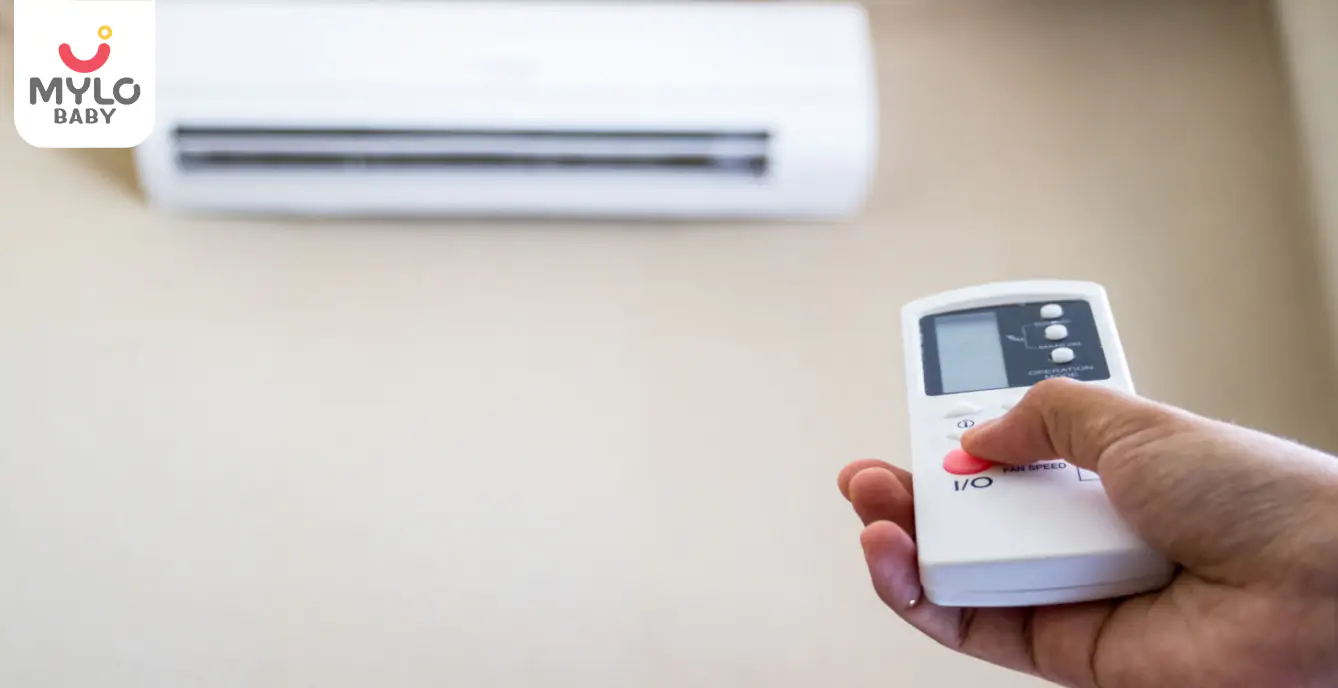
Use of Air Conditioners & Coolers for Newborns
Illnesses & Infections
Neonatal Jaundice: Causes, Symptoms & Treatment

Depression
Depression During Pregnancy: Causes, Risks & Treatment

TV & OTT
Discover the 10 Best Shows on Netflix in 2023!

Diet & Nutrition
Eating Spicy Food During Pregnancy: Is it Safe or Not?

General Toddler
7 Tips to Help Your Toddler Transition From Potty to Toilet
- Embryo Freezing: Purpose & Outcome
- Exercises to Help Strengthen Weakened Pelvic Floor Muscles
- How Moms are Approaching 2023 - Mylo's Survey This Year End
- Second Trimester of Pregnancy
- Third Trimester of Pregnancy
- Mylo Care Stretch Marks Cream Review
- How to Cure Breathlessness in Pregnancy Using 8 Natural Ways?
- Top 10 ways in which coconut water can help during pregnancy
- 7 Signs of Labor: Know What to Expect
- Points to Remember While Choosing Toys for Your Baby
- Top 10 Tips to Manage a Fussy Eater Toddler
- Baby Oral Care: When to Start Brushing Baby's Teeth
- Top 5 Supplements That You Need to Take During Pregnancy
- Reasons To Stop Working During Pregnancy


AWARDS AND RECOGNITION

Mylo wins Forbes D2C Disruptor award

Mylo wins The Economic Times Promising Brands 2022
AS SEEN IN

- Mylo Care: Effective and science-backed personal care and wellness solutions for a joyful you.
- Mylo Baby: Science-backed, gentle and effective personal care & hygiene range for your little one.
- Mylo Community: Trusted and empathetic community of 10mn+ parents and experts.
Product Categories
Baby Carrier | Baby Soap | Baby Wipes | Stretch Marks Cream | Baby Cream | Baby Shampoo | Baby Massage Oil | Baby Hair Oil | Stretch Marks Oil | Baby Body Wash | Baby Powder | Baby Lotion | Diaper Rash Cream | Newborn Diapers | Teether | Baby Kajal | Baby Diapers Pants | Cloth Diapers | Laundry Detergent | Lactation Granules |




